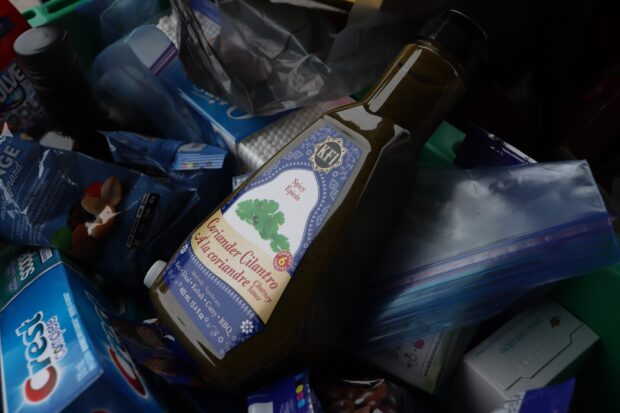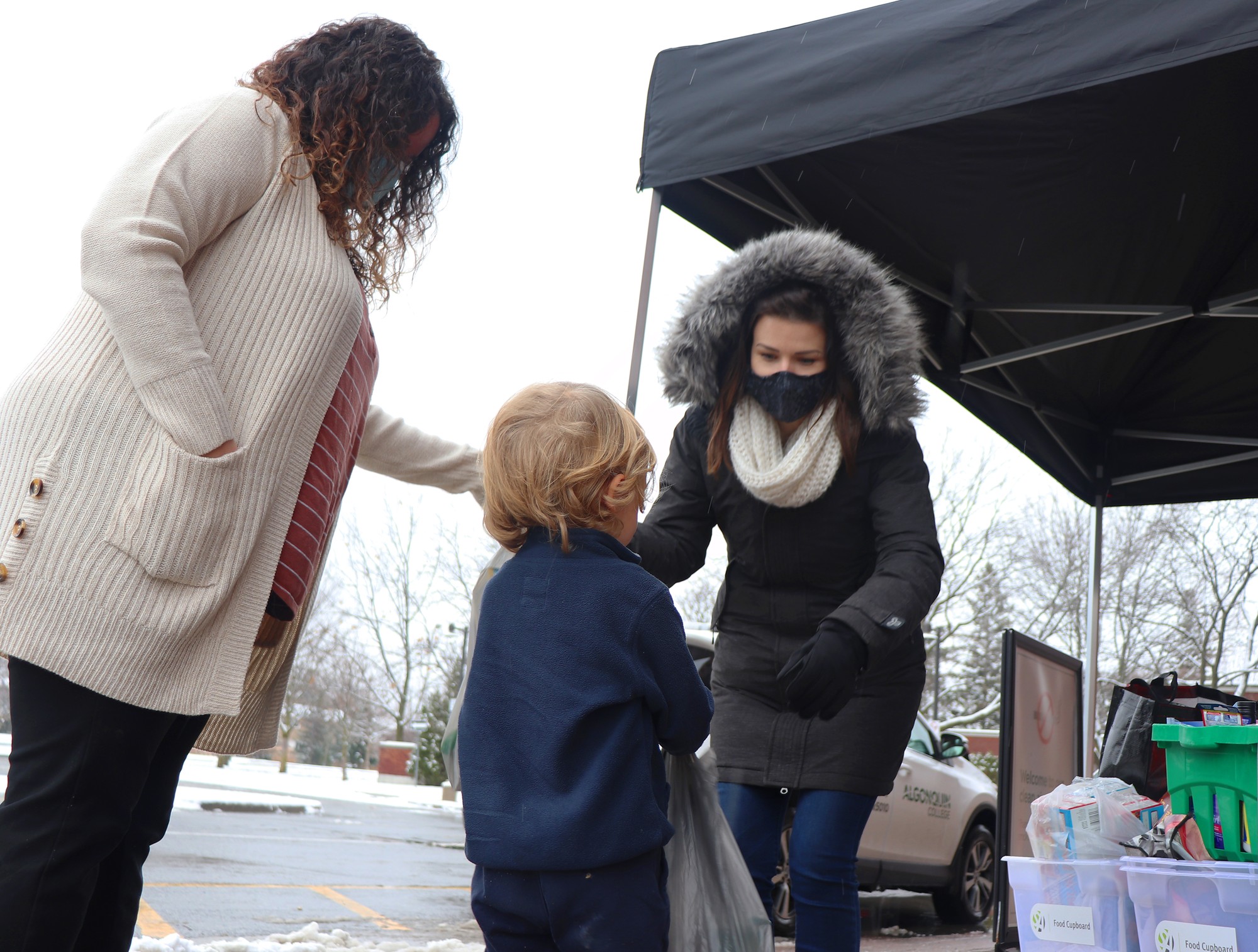The Students’ Association Food Cupboard hosted their second drive-thru donation outside of C-Building on Wednesday, Dec. 9.
This time around, the Food Cupboard saw twice as many participants’ and received double the amount of food donations than they did at the first contactless drive in October.
Jessica Clark, coordinator of the Food Cupboard organized this event to help Algonquin students who are struggling financially and need assistance.
The event in October was their first contactless donation drive. “This is, by far, so amazing,” she said about the December event. “The first one was still successful, but we didn’t see as many people. I think that people are learning this is a thing that is happening, more people are showing up.”
The event was open to the general public and accepted monetary donations, non-perishable food items and basic hygiene supplies.
“You’d be surprised, sometimes people think they’re donating odd items but then it’s items that students really need,” said Patrick Newell, senior manager of Student Life at the SA.
Clark said items like toothpaste, toothbrushes and toilet paper are always helpful. People bring in things like diapers, feminine hygiene products and even cat food that always seem to benefit students’ needs.
Sometimes she has international students come in and are surprised by some of the foods offered.
“Some people come and donate because they have an international student in mind,” said Newell.

Nine donors dropped off 517 items in total. One in which also donated two months ago to assist Algonquin students.
“One person came and donated these three boxes,” Newell said, pointing to the filled boxes of donations waiting to be brought into the college. “The first person came and donated probably $600 worth of food, so the people that are coming are donating large quantities.”
Statistics Canada published an overview of a six-month update on social, economic and justice impacts of COVID-19 on Oct. 20. This overview analyzes Canadians’ response the virus and shifting health concerns.
A postsecondary crowdsourcing survey conducted by Statistics Canada earlier in the pandemic said that students are extremely concerned about their finances. This stress continues even with the assistance of the Canada Emergency Student Benefit last summer.
Students’ three main worries according to Statistics Canada include: Using up their savings, paying for tuition next term and taking on more student debt.
“The government announced today that the normal grocery bill for a family of four is going to go up five per cent which is up $700 per year,” said Newell. “Which is a lot of money for low-income families.”
Newell said it’s handy when people donate single-usage items, so Clark doesn’t have to divide the quantities. Sometimes Clark has to divide tubs of detergent or olive oil so she can help 20 students instead of one for example.
“They have the choice of either requesting a gift card if they’re not near campus or able to get to campus or not comfortable coming,” she said. “I can email them a gift card that allows them to go to a grocery store near where they live, or some would prefer the food and supplies and are on campus anyways or near, so they would just come.”
Students could either drop in at the Food Cupboard on campus or book an appointment in a normal semester. Going forward because of COVID, they have to book an appointment online prior. This confidential service connects people from the community to help support students’ needs.


